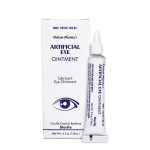
The U.S. Food and Drug Administration’s heavily criticized tobacco program promised changes on Friday, including a five-year strategic plan to better outline priorities. “As we enter this era of declining use of combustible tobacco and continued innovation in the e-cigarette industry, the societal concerns are not subtle,” FDA Commissioner Dr. Robert Califf said in an agency news release. “Our ability to keep pace with these changes will depend on immediate, short-term and long-term actions the center is taking that we believe will position the agency to more successfully implement our regulatory oversight of tobacco products.” The agency has faced criticism from anti-tobacco advocates, the industry and lawmakers for its past work in cigarette and vaping regulation, the Associated Press reported. An external review commissioned last summer released a report in December that called the FDA “reactive and overwhelmed.” Its workforce was struggling to manage tobacco and largely unauthorized e-cigarettes, the report stated. The FDA’s new strategic plan is expected to outline efforts on e-cigarettes, as well as to be more transparent about FDA decisions, such as mass rejection of applications from e-cigarette makers. Regulators would like to “better communicate” with companies about how the FDA makes decisions, said Brian King, tobacco chief for the agency. “Some things will take longer than others, but we’re committed to getting everything done that we’ve outlined as expeditiously as… read on > read on >



























-300x200.jpg)










